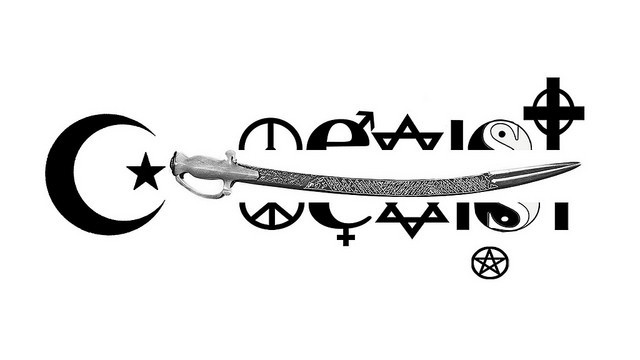
“An eye-for-eye and tooth-for-tooth would lead to a world of the blind and toothless.” ~ Mahatma Gandhi
.
The question is not whether to pray for Paris or to pray for Beirut.
Obviously, we can (and do) pray for the victims of any violent attack—and their loved ones reeling from such sudden, tragic loss.
The question is not whether “black lives matter” more than “all lives matter.” By black, I mean brown—Arab, Latino, Indian, African.
The question is—what to do with the situation that we’re all in? Together?
Prayer helps. Mindfulness helps. Metta helps.
Yet—prayer, mindfulness and metta are not enough.
First of all, it’s okay to feel overwhelmed. The frequency of disasters (both man-made and natural) is enough to make me want to crawl back into bed indefinitely.
Scrolling down my news feed yesterday, I got a little irritated by my culture’s “slacktivism”—our thinking that by re-posting clever images with #prayforparis or #prayfortheworld or by taking ten seconds to update our profile pic with the French flag colors, we are doing some form of activism.
This is a statement of my opinion: #hashtagsaremostlybullshit.
This morning, I felt inspired to read a few articles related to the mass killings in Paris, including a long, incredibly well-researched one from Atlantic Monthly, entitled “What ISIS Really Wants.” In it, Graeme Wood writes:
“The Islamic State, also known as the Islamic State of Iraq and al-Sham (ISIS), follows a distinctive variety of Islam whose beliefs about the path to the Day of Judgment matter to its strategy, and can help the West know its enemy and predict its behavior…
The reality is that the Islamic State is Islamic. Very Islamic. Yes, it has attracted psychopaths and adventure seekers, drawn largely from the disaffected populations of the Middle East and Europe. But the religion preached by its most ardent followers derives from coherent and even learned interpretations of Islam.”
This is not to say that all Muslims are terrorists—that idea is absurdly wrong.
Terrorism, no matter its source, is terrifying. The war on terror is unwinnable. Hate only leads to more hate. So, how can we love in the face of such evil? What actual action can I—itty, bitty me—take in the face of such evil?
“Looking at all this confusion, why does each one of us accept and conform, instead of shattering the whole process in ourselves?” ~ J. Krishnamurti
The victim and the criminal lives within each one of us. Think of it as the victim/criminal continuum—some folks are 100% victims and some are 100% percent criminals. Most of us are probably closer to 50/50.
When will we awaken to this fact? The fact that the potential to be victimized, and the potential to be the victimizer, is present within each of us—albeit usually lurking in the shadows?
The criminal is suffering. That doesn’t mean he or she shouldn’t be stopped or brought to justice. (If there actually is such a thing.) It means, we need to develop compassion for the victims and perpetrators within us—and for the victims and perpetrators in society.
How can this be done?
Only through awareness of the need for human connection and actions that connect us. For example—heart-to-heart conversations, whether written or verbal. Real love, not fake love. Compassion, not just sympathy.
This morning, I went to visit my neighbor. Another mutual “friend” stopped by. This person is one whom I generally avoid—he’s a bad seed, a thief, a misogynist. (That’s his reputation, anyway.) But today, I stuck around. I dropped my judgements and spoke to him, and I found out we’re both Geminis, and we share much more in common than I previously had imagined. We had a conversation, and now I will smile genuinely, not falsely, when I see him on the street.
The path is not easy, but here we are.
“Seeing all this—the wars, the absurd divisions which religions have brought about, the separation between the individual and the community, the family opposed to the rest of the world, each human being clinging to some peculiar ideal, dividing himself into ‘me’ and ‘you,’ ‘we’ and ‘they’—seeing all this, both objectively and psychologically, there remains only one question, one fundamental problem and this is whether the human mind, which is so heavily conditioned, can change.
Not in some future incarnation, nor at the end of life, but change radically now, so that the mind becomes new, fresh, young, innocent, unburdened, so that we may know what it means to love and to live in peace.” ~ J. Krishnamurti
Om. Shanti, shanti, shanti. Om. Peace, peace, peace.
.
Relephant:
Why I’m Not Turning My Facebook Photo Blue, White & Red.
Slacktivism Versus Action.
Author: Michelle Margaret Fajkus
Assistant Editor: Hilda Carroll/Editor: Yoli Ramazzina
Photo: Flickr/Aia Fernandez


Read 1 comment and reply